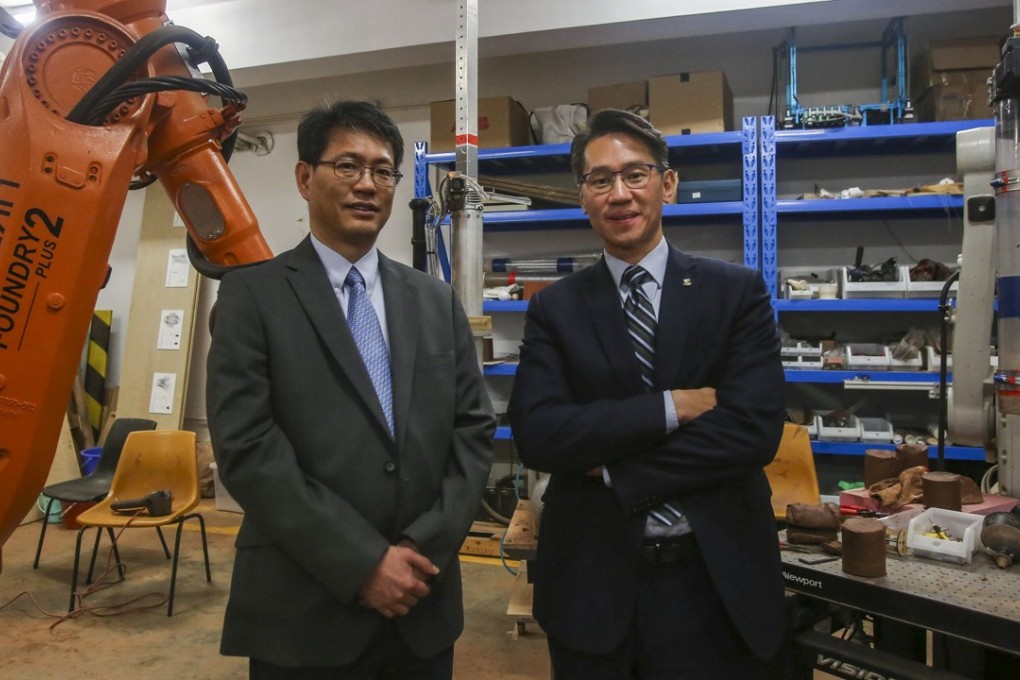University of Hong Kong to partner with Tsinghua University in Beijing for big artificial intelligence push
- HKU’s pro-vice-chancellor says strategic partnership can help both cities become global leaders in technology

The University of Hong Kong is to join up with a major Beijing university with the aim of breaking new ground in artificial intelligence (AI), especially in the areas of medicine, financial technology and environmental protection.
Announcing the partnership with Tsinghua University in an interview on Friday, HKU’s vice-president and pro-vice-chancellor Professor W. John Kao, as well as engineering dean Christopher Chao Yu-hang said the strategic partnership would help Hong Kong and Beijing become global leaders in technology.
“Beijing and Hong Kong can leverage the entire ecosystem whether it’s policy, education or finance. So it’s more than just two universities coming together, but two cities working on this very complex issue,” Kao said.
Since last year, the central government has supported Hong Kong’s bid to develop innovation and technology as a new driver of growth and to reduce the city’s reliance on the financial industry.
Under this initiative, the Institute of Automation, the country’s leader in AI research, will set up a branch at the Hong Kong Science Park, while the Ministry of Science and Technology will work with SenseTime, a Hong Kong start-up co-founded by a Chinese University professor, on AI applications such as intelligent vision and facial recognition.
Chinese University and the Shenzhen Institutes of Advanced Technology have also jointly set up the Engineering Laboratory of Robot and Intelligent Manufacturing.